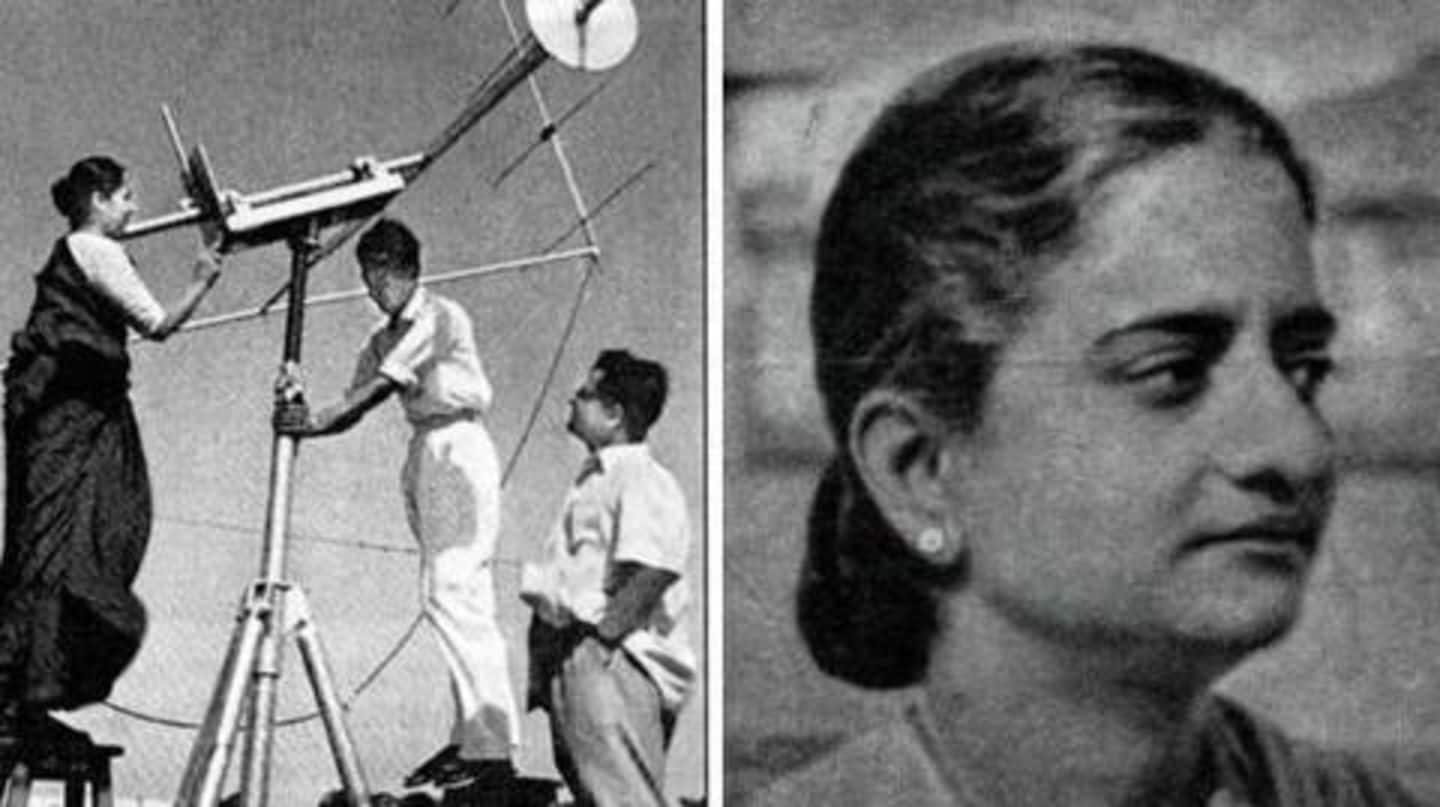
How Lalitha, a single-mother, became India's first woman-engineer in 1940s
What's the story
In the 1940s, when most women in India couldn't even receive basic education or think about having a career, Ayyalasomayajula Lalitha of Madras (now Chennai) scripted history by becoming the country's first-ever woman engineer. However, the journey had not been easy for Lalitha, a single mother, who got married as a child at 15 but lost her husband at 18. Here's her inspiring story.
About
Lalita was born in 1919 to a middle-class Telugu family
Lalitha, born in 1919, belonged to a middle-class Telugu family; she was the fifth-child among seven siblings. Though she was married at 15, her father ensured she studied until Class-10 after marriage. In 1937, she gave birth to her daughter, Syamala, but lost her husband four months later. Though practices like Sati weren't prevalent in Madras, odds were stacked against the young, widowed single-mother.
Determination
Lalitha decided to become an engineer like father and brothers
Despite challenges, with forward-thinking mindset, Lalitha was determined to pursue engineering, a field dominated by men in those days. Notably, her father, Pappu Subba Rao, and brothers were engineers too. Her father, an Electrical Engineering professor at College of Engineering, Guindy (CEG), University of Madras, approached college principal KC Chacko and Public Instruction Director RM Statham for Lalitha's admission, a first in CEG's history.
Challenges
Lalitha's daughter on the challenges her mother faced
Speaking to TheBetterIndia, Lalitha's daughter, Syamala Chenulu who's settled in the US, said, "When my father passed away, mom had to suffer more than she should have. Her mother-in-law had lost her 16th child and took out that frustration on the young widow." "However, my mother decided not to succumb to societal pressures. She would educate herself and earn a respectable job," she added.
College
CEG authorities even arranged for separate hostel for Lalitha
Syamala said that students at CEG were "extremely supportive"; though Lalitha was the only girl she never felt uncomfortable. She said CEG authorities even arranged for a separate hostel for her mother. Lalitha started studying electrical engineering in 1940; but she felt lonely in the hostel following which admissions for women were advertised. Later, Leelamma George and PK Thresia joined civil engineering at CEG.
Graduation
Lalitha graduated along with Leelamma and Thresia
Leelamma and Thresia were juniors to Lalitha by one year, said Syamala, adding, "All three of them graduated together because the Second World War was at its peak in 1944 and the university decided to cut down the engineering course by a few months." Notably, CEG had to replace the word "He" from the degree certificates with "She" when Lalitha, Thresia, and Leelamma graduated.
Information
Lalitha assisted her father in various inventions
After graduating, Lalitha briefly worked in Shimla with Central Standard Organization. She also worked with her father in Madras. She assisted Rao in inventing Jelectromonium (electrical musical instrument), electric flame producer, and smokeless ovens. Lalitha settled for a job later at Associated Electrical Industries, Kolkata.
Achievements
Invited to first International Conference of Women Engineers and Scientists
Lalitha's achievements were soon globally recognized. In fact, she was invited to the first International Conference of Women Engineers and Scientists (ICWES) in New York. "Today, I can understand how important my mother is in the history of women's education in India as well as in the history of engineering, back then, all I knew was...my mom is an engineer—just another engineer," said Syamala.
Quote
Lalitha passed away at a young age
Syamala said, "She (Lalitha) never remarried and never made me feel the absence of a father in my life." However, the country's first woman engineer passed away at quite a young age. She was just 55 years old when she died of a brain aneurysm.